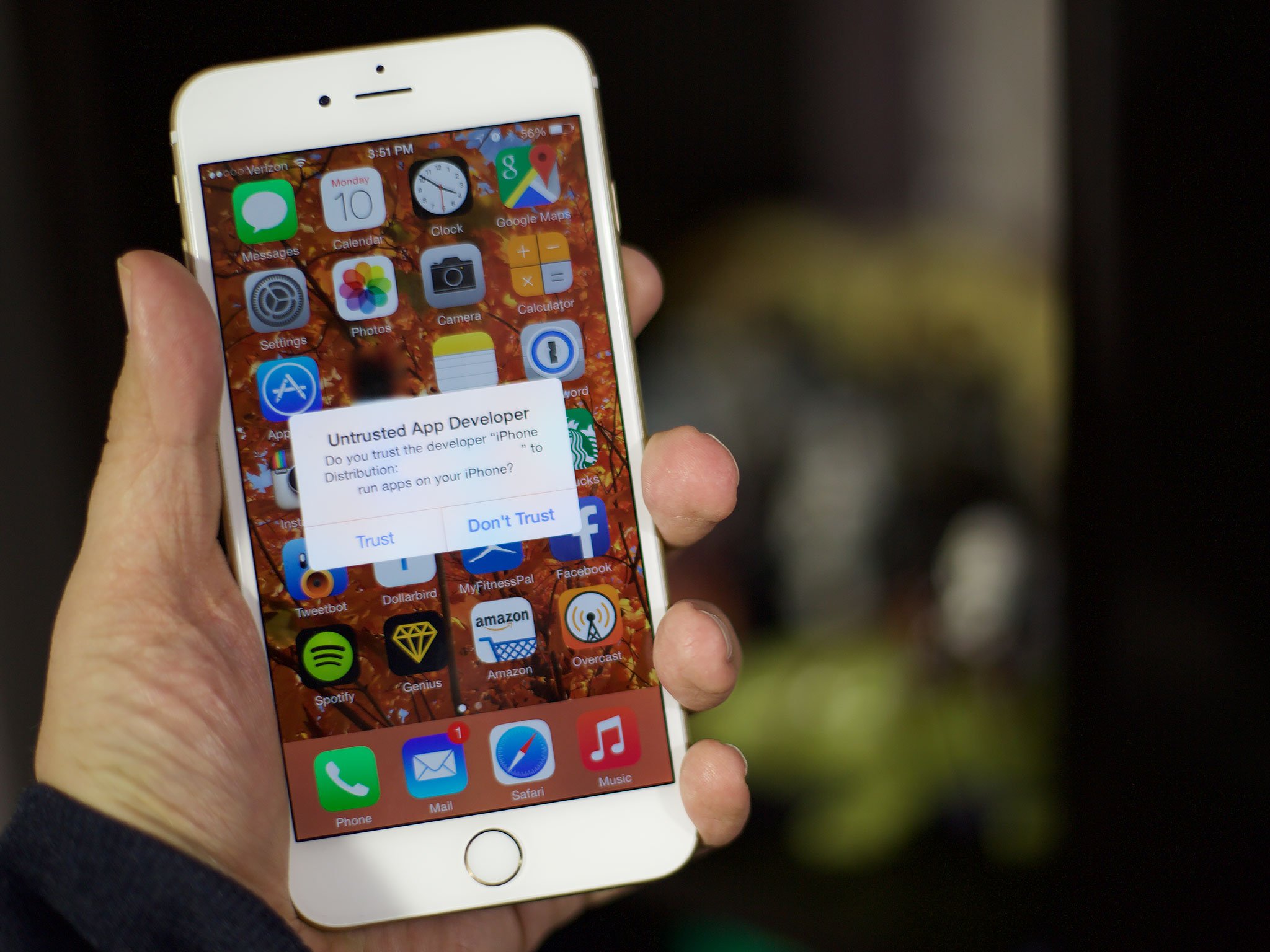Nothing to fear but fear-mongering itself

Some text was put up on the internet this weekend that contends Apple has such centralized control over iOS that, if it were ever to turn evil and become the instruments of surveillance states, there'd be nothing to protect us because Apple actively patches jailbreak exploits and doesn't allow the installation of non-App Store apps.
I'm loathe to link to articles like this, so if you're really curious about it, check out Daring Fireball where John Gruber goes through it point by stupefying point.
From my reads, it's about as rational as saying not to eat at McDonald's because one day they could start dosing all their fries with Paxilon Hydrochlorate, or not to watch YouTube videos because one day they could start spreading brain-blowing blipverts.
Even if we have faith in Apple and Tim Cook today, it asks, how can we have faith in what Apple might become, and who might be leading them tomorrow? Into who's hands, dammit, can we trust our Apple Utopia?
But Apple isn't a utopia. It isn't a benevolent dictatorship. In the story of the police state, Apple isn't the police or the state. Their control ends not at our lives or freedom but at the shiny boxes they sell us. That we could dump those shiny boxes at any time not only shows how fallacious the argument is, but how deeply incentivized Apple truly is to not turn evil.
In order to survive, Apple needs us buying those shiny products and for us to buy them, Apple needs our trust. Lose our trust and they lose our business. Lose our business and Apple loses everything.
Apple knows that, of course, which is why apple.com/privacy not only exists, but has top-level status and top level support.
iMore offers spot-on advice and guidance from our team of experts, with decades of Apple device experience to lean on. Learn more with iMore!
Because of Apple's stance on security, in fact, it's currently only possible to get spyware onto an iPhone by exploiting jailbreaks or using the non-App Store installation method Apple does allow, Enterprise Distribution. And because of Apple's dedication to security, even that is currently only possible if the person in physical possession of the iPhone actively circumvents the protections Apple has put in place.
Open that door, and you create the potential for anyone to come in, including the surveillance states that are ostensibly the concern.
The greater problem here isn't just that the article is dumb, however. It's that it's dangerous.
How do you attack strength? By painting it as weakness. How do you attack security? By painting it as potential tyranny. It's a common tactic of those who depend on a lack of security or who can't compete based on security.
It's also the tactic used in this article, which advises people not to use iOS because of reasons that amount to no more than fear, uncertainty, and doubt.
iOS, which has privacy and security marketed as a front-facing feature. iOS, which receives security patches for all versions going back to 2011, for all customers, all at the same time. iOS, which is putting itself between its customers and those who would do them harm, not in some click-bait mirrorverse but right now, here, today.
It's why people, including security journalists not predisposed towards Apple aren't switching away from the iPhone. They're switching to it.

Rene Ritchie is one of the most respected Apple analysts in the business, reaching a combined audience of over 40 million readers a month. His YouTube channel, Vector, has over 90 thousand subscribers and 14 million views and his podcasts, including Debug, have been downloaded over 20 million times. He also regularly co-hosts MacBreak Weekly for the TWiT network and co-hosted CES Live! and Talk Mobile. Based in Montreal, Rene is a former director of product marketing, web developer, and graphic designer. He's authored several books and appeared on numerous television and radio segments to discuss Apple and the technology industry. When not working, he likes to cook, grapple, and spend time with his friends and family.
